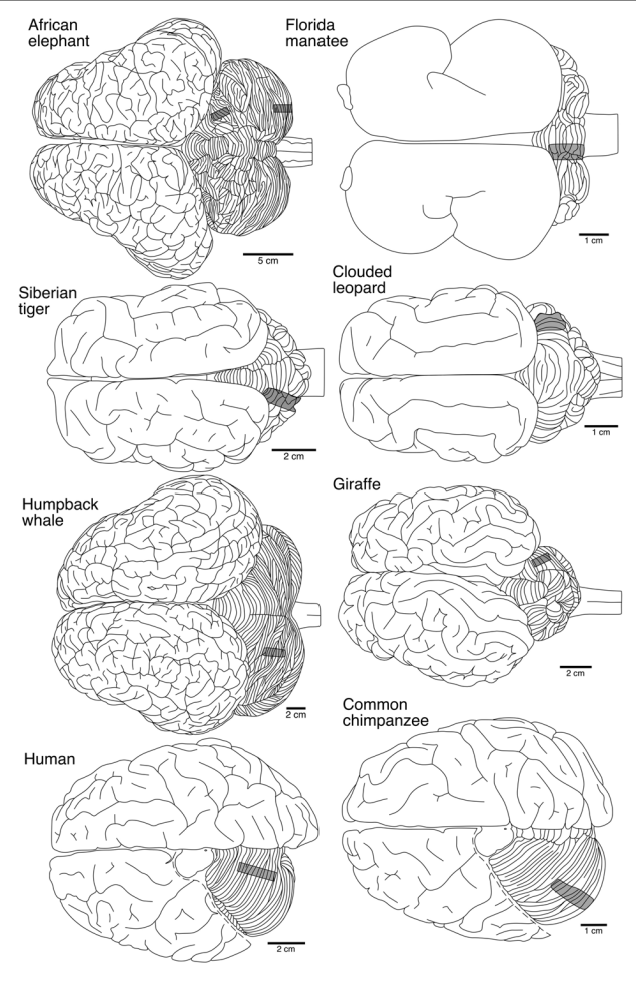Your brain is truly an extraordinary structure, and it’s the reason you can do all the amazing things you do. This mass of wrinkly material weighs only about 1.3 kilograms, yet it controls every single thing you will ever do. It’s the engine that drives our behaviour and allows us to interact with the world.
Despite its relatively small size — the brain makes up only 2% of our body mass — it’s an incredibly energy-intensive organ. In fact, it consumes more than 20% of our oxygen supply and blood flow and uses more energy than any other tissue in the body. This is because it has a dense network of neurons, specialized cells that transmit signals throughout the nervous system. There are around 100 billion neurons in the human brain, each connected to thousands of other neurons, passing signals to each other via trillions of synapses.
The human brain has more connections than there are stars in the Milky Way galaxy and it can process information at a speed of up to 120 meters per second! Even when you are asleep your brain never really “shuts off”! While you’re snoozing away, your brain is busy consolidating memories, processing emotions, flushing out harmful toxins and keeping your mind sharp and healthy.
One more key feature that sets our brain apart is the cortex, the outer layer of the brain responsible for many of the higher cognitive functions that are unique to humans, such as abstract reasoning and language. While all mammals have a cerebral cortex, the human cortex is disproportionately large, accounting for 80% of our total brain mass, and it’s much more complex than any other animal.
Now, have you ever wondered how the human brain compares to the brains of other animals?
Some animals have much larger brains than we do. For instance, the brain of a sperm whale weighs around 8 kilograms, making it the largest brain of any animal on Earth. To put it into perspective, that’s about five times the size of a human brain! Similarly, the brains of elephants are also much larger than ours, weighing in at around 5 kilograms.

We might not have the largest brain compared to other species however, the human brain is larger than most animal brains relative to body size. Why did humans evolve such large brains in the first place? The question has puzzled scientists for years, but there are a few theories that have gained traction.
The “social brain” hypothesis suggests that our large brains evolved as a result of our ancestors’ increasingly complex social structures. As early humans began to live in larger groups, they needed to be able to navigate the complex social dynamics of their communities, for example cooperating for resources and maintaining social relationships. Another theory known as “ecological intelligence”, suggests that the pressure for larger brains was driven by environmental conditions. Our ancestors had to adapt to the challenges posed by the environment, such as finding food and shelter. Finally, the “cultural intelligence” hypothesis emphasizes the challenge of learning from different cultures and teaching their own (González-Forero & Gardner, 2018).
While each of these theories has some evidence to support it, there is still much debate among scientists about which theory (if any) is the most accurate. It is likely that all three theories played a role in the evolution of the human brain, to varying degrees.
The human brain is a fascinating organ that has captivated scientists are researchers for centuries. Despite all our advances in neuroscience, however, there is still so much that we don’t know about how the brain works and what it is truly capable of.
~~~~~~
This article, along with others I’ll be releasing this week, has been created for the Brain Awareness Week 2023. My aim for this week is to spark your curiosity, share valuable knowledge, inspire, and raise awareness about factors that can impact our brain health.
Want to stay updated? Follow me on Medium! Let’s dive into the fascinating world of the brain together.
~~~~~~
References:
González-Forero, M., & Gardner, A. (2018). Inference of ecological and social drivers of human brain-size evolution. Nature, 557(7706), Article 7706. https://doi.org/10.1038/s41586-018-0127-x
Jacobs, B., Johnson, N. L., Wahl, D., Schall, M., Maseko, B. C., Lewandowski, A., Raghanti, M. A., Wicinski, B., Butti, C., Hopkins, W. D., Bertelsen, M. F., Walsh, T., Roberts, J. R., Reep, R. L., Hof, P. R., Sherwood, C. C., & Manger, P. R. (2014). Comparative neuronal morphology of the cerebellar cortex in afrotherians, carnivores, cetartiodactyls, and primates. Frontiers in Neuroanatomy, 8. https://doi.org/10.3389/fnana.2014.00024